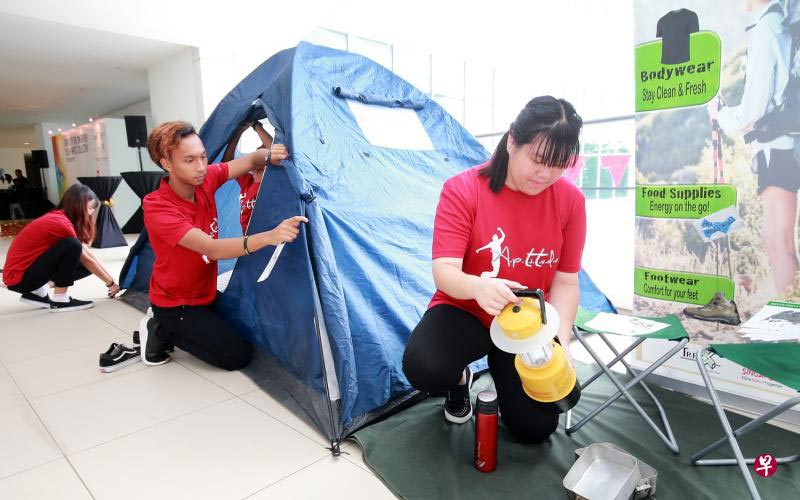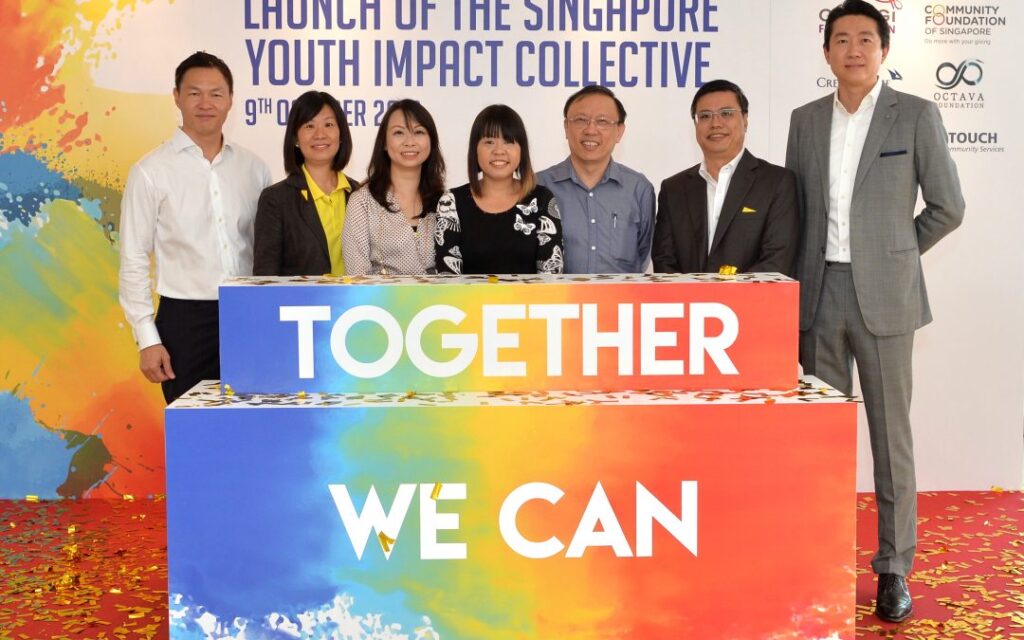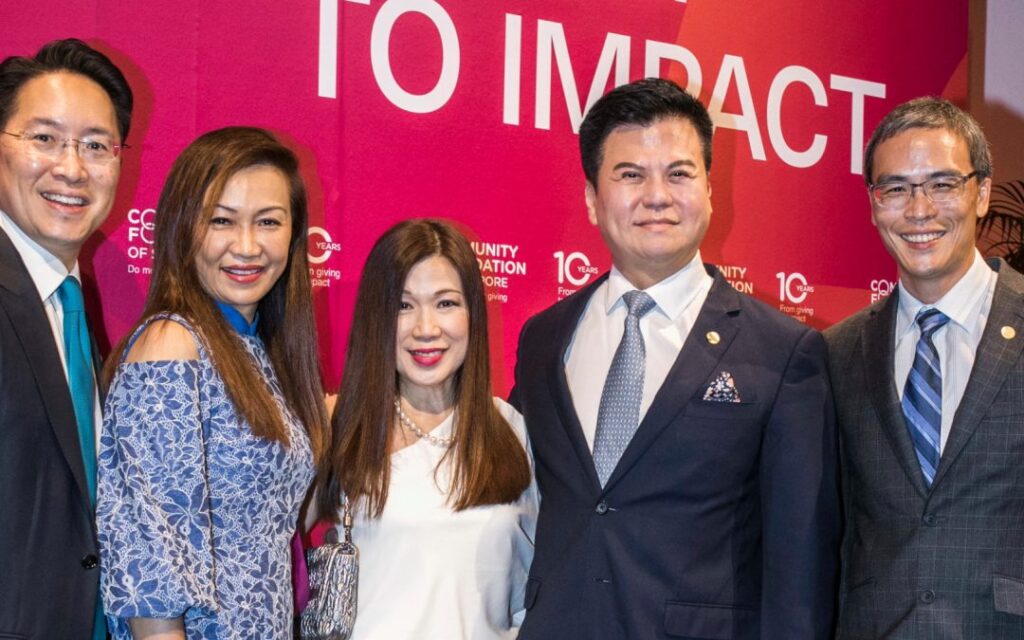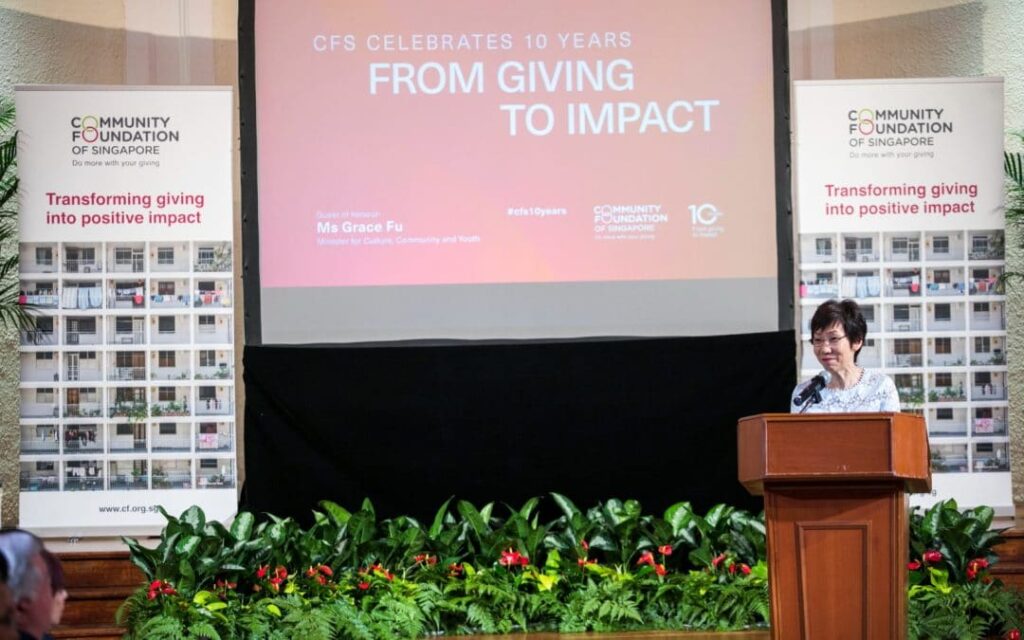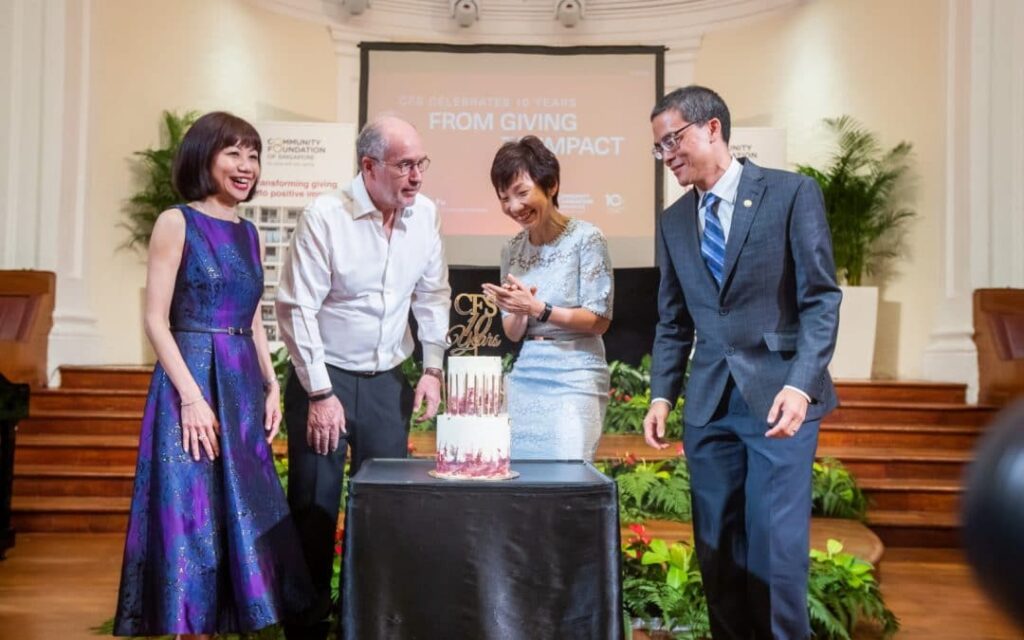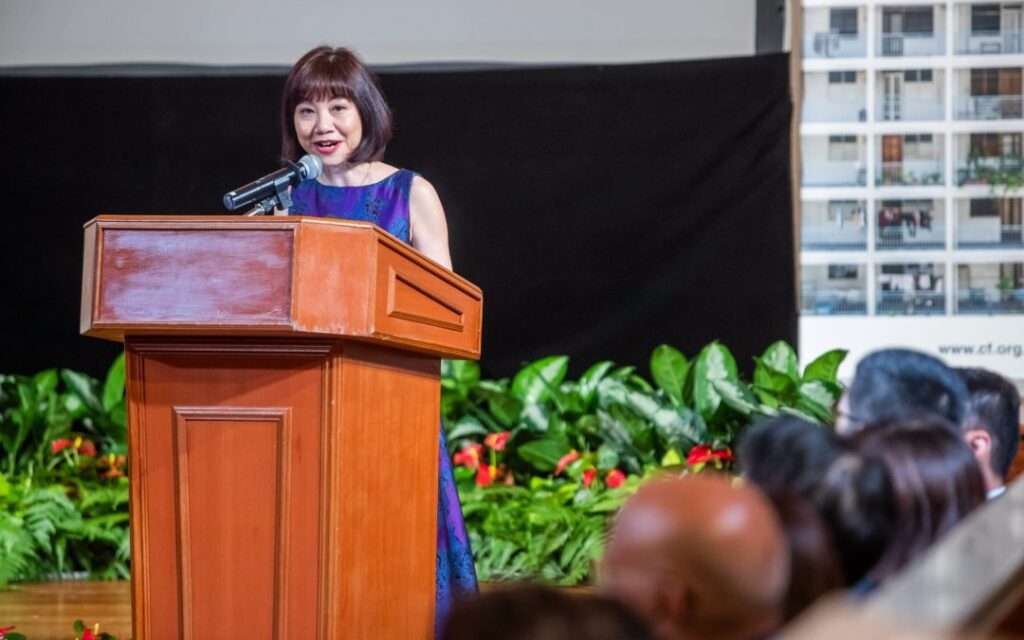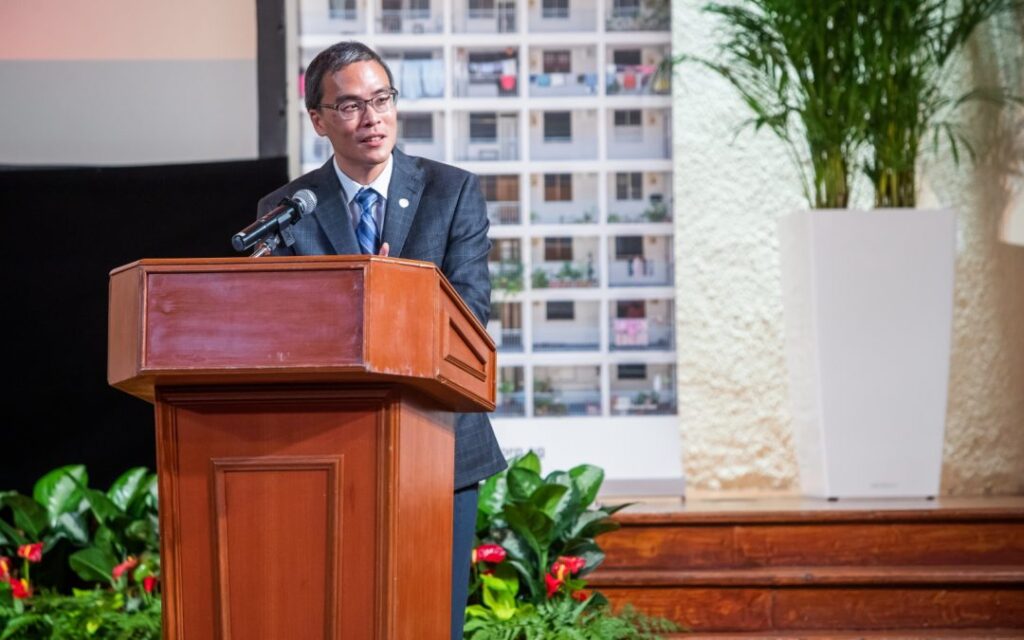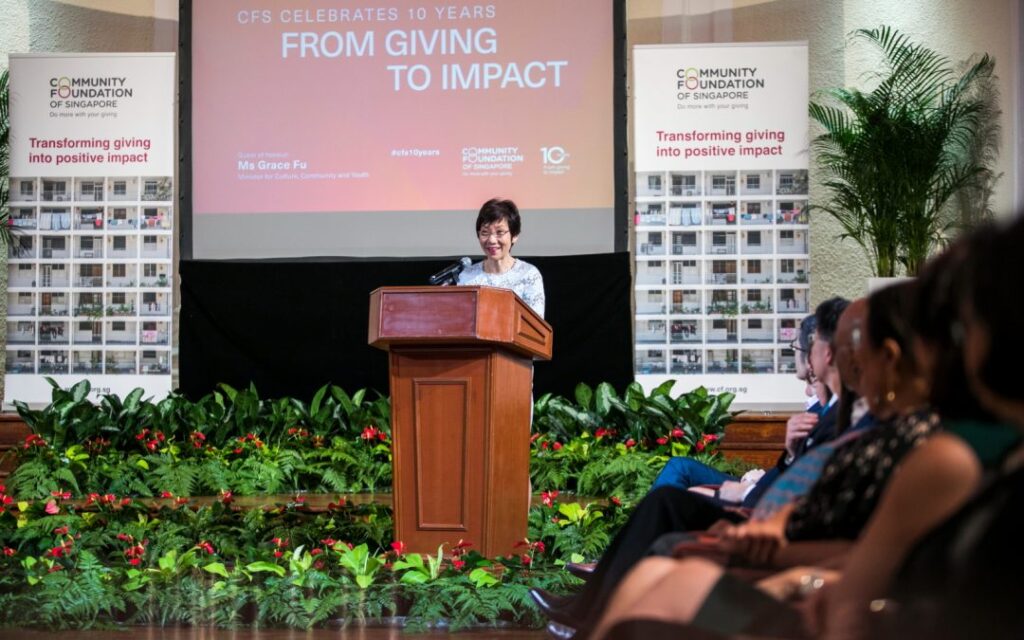After months of anticipation, CFS’s year-long 10th anniversary celebrations came to a high point on 5 September 2018 at a gala event held at The Arts House. Guest of honour, Minister for Culture, Community and Youth Grace Fu, and 120 guests including donors, charities and other partners, came together to commemorate this major milestone in CFS’s history.In her keynote speech, Minister Fu reflected on philanthropy’s important role in Singapore’s history and its continued relevance in building a culture of care. She thanked CFS for “its excellent work in raising funds and giving out grants, as well as in inspiring and enabling giving in Singapore” and that “as Singapore’s only community foundation, CFS plays an important role as a bridge builder between local communities and the larger charitable ecosystem.”
